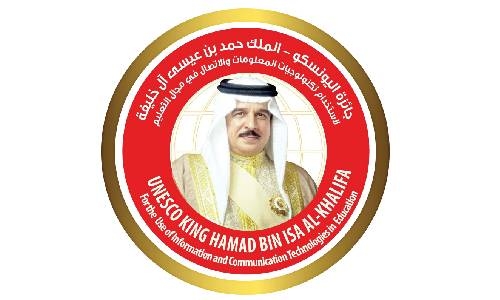UNESCO King Hamad Prize awards projects from India and Tanzania
TDT | Manama
The Daily Tribune – www.newsofbahrain.com
The 2021 UNESCO King Hamad Bin Isa Al-Khalifa Prize for the Use of Information and Communication Technologies (ICTs) in Education will be awarded to the “Initiatives for Inclusive and Accessible Education during COVID-19” implemented by the Central Institute of Educational Technology (CIET), National Council for Educational Research and Training from India, and the “Digital Educational Programme” implemented by Ubongo from the United Republic of Tanzania.
US$ 25,000
Each laureate will receive US$ 25,000 for their use of technology to enable inclusive crisis-resilient learning systems. The laureates will be awarded during a ceremony on 24 June at UNESCO Headquarters, together with the four laureates from the 2020 and 2019 editions.
The 2021 edition is dedicated to a theme whose importance has been highlighted by COVID-19. It rewards projects that have used technology to build learning programmes that effectively ensure the continuity and quality of learning in the face of education disruptions.
The International Jury reviewed 111 nominations submitted by 58 UNESCO Member States and eight NGOs in official relations with UNESCO, and recommended the two projects to recognise their achievements in harnessing technologies to serve education by adopting a variety of digital solutions, providing adaptable and high-quality content, and reaching a large scale of learners, especially the disadvantaged communities.
UNESCO ICT Prize for India’s CIET and Tanzania’s Ubongo
The Central Institute of Educational Technology (CIET), National Council for Educational Research and Training from India has reinforced a series of programmes during COVID-19 to ensure the continuity and quality of education, reaching over 1.5 million schools, 240 million students, and 8.5 million teachers.
The digital learning programmes were made accessible by diverse media including TV and radio, and online platforms for students, teachers and educational administrators. The initiatives enabled flexible and personalized learning, while considering the special needs of students with disabilities and students in rural areas in India.
Ubongo The digital educational programme of Ubongo, launched in Tanzania in 2014, has released more than 300 TV and radio files in 8 local languages across 18 countries in sub-Saharan Africa, with an aim to bring effective and localized learning to school-age children and their parents by leveraging the power of entertainment, technologies.
As one of the biggest educational entertainment initiatives in Africa, Ubongo shows the ability to develop, adapt and distribute new content to support disruptive learning environments, home-based learning and context-specific education, such as for refugees and kids recovering from traumas.
Related Posts

